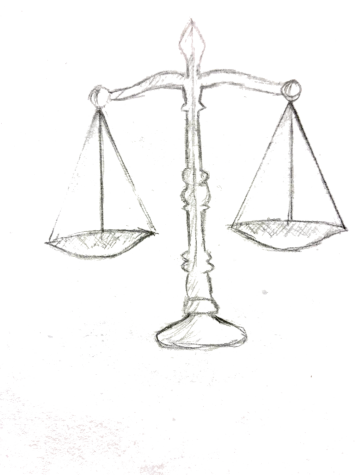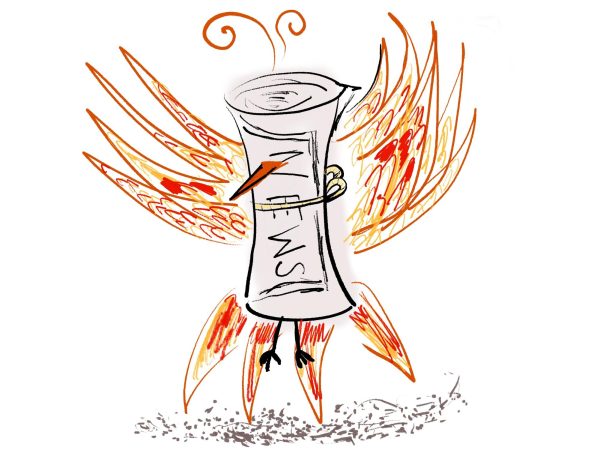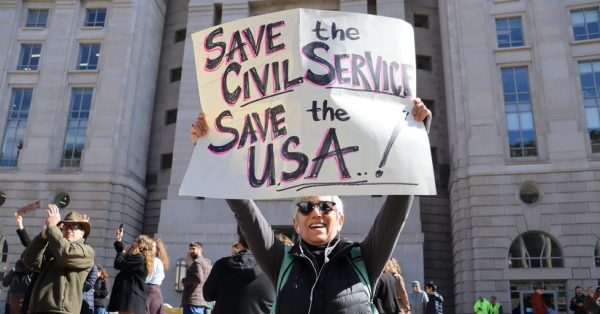Lady Justice, Open Your Eyes
How Wealth and Power Influence Our Justice System
With the Varsity Blues College Admissions scandal and the Jeffery Epstein case coming out in such a short timeframe, one would think that the wealthy and powerful using their influence to game the system would finally be held accountable. The justice system has been abused for time immemorial, and Roman Polański shows us that decades can pass without someone ever being brought to justice. The reality of the system, though, is that there are massive discrepancies between what should happen and what does happen.
In 1982, he founded his own firm, J. Epstein and Co., where he supposedly invested for many billionaires. However, only one of his alleged high-profile clients was publicly known. In addition to this purported wealth, he was known to associate with powerful people indiscriminately. His network of influential friends included Presidents Donald Trump and Bill Clinton, two presidents on opposite sides of the political divide
In 2008, he plead guilty to soliciting prostitution involving a minor. At this point, he had a network of girls acting as recruiters for his sex trafficking network. Many of Epstein’s associates may be implicated by his trial.
One such girl is Haley Robson, who was a high school student when she was offered money in exchange for giving massages to Epstein. She took the offer, and soon was recruiting other girls from her school. While she, wearing nothing but a thong, was giving Epstein a massage, he attempted to grope her. She filed a civil case in 2009. Robson was not alone; at least dozens of girls were harmed in his criminal activities.
Years in jail might be expected, but he only served 13 months. During his time there, he was allowed to leave in order to work –something not allowed for sex offenders. Epstein avoided a harsher sentence, presumably due to his wealth and influence. After he was released from jail, his life returned to normal.
However, he was soon arrested again at Teterboro Airport in New Jersey on July 6, 2019, due to possession of child pornography. This opened the floodgates to “a million pages of discovery,” as his prosecutors put it. After he was indicted again, all of the aforementioned associates denied any close connections to him. Although he willingly posted $100 million in bail, he was ultimately denied bail as he was a flight and public safety risk. With the amount of evidence and corroborating stories against him, he faced up to 45 years in prison.
On July 23, he was found injured in his cell. After this incident, he was placed on suicide watch, but on July 29, he was released back into normal prison conditions. On August 10, he was found unresponsive in his cell and declared dead a few hours later. The autopsy stated his cause of death as suicide by hanging.
Epstein should not have been able to commit suicide in the controlled environment of jail. This begs the question: how was he able to do so?
The Federal Bureau of Prison official guidelines state, “Once an inmate has been placed on watch, the watch may not be terminated, under any circumstances, without the program coordinator or designee performing a face-to-face evaluation.”

Due to his notoriety, the severity and multitude of the allegations, and his previous attempt, the wardens should have taken no chances and left him on watch until he left the jail. Yet, in just a week, he was taken off suicide watch.
Although Epstein’s case is an atrocity in and of itself, it is just one instance of an inherently problematic system. A crime of a different nature but that garnered a similar response is the Varsity Blues college admissions scandal. A group of rich, famous parents illegally gamed the college process for their children and went unnoticed for nearly a decade.
A recent development in this case was the sentencing of Felicity Huffman, who inflated her daughter’s SAT score by paying $15,000 to have someone correct her daughter’s answers. She was sentenced to a mere 14 days in jail as well as a year on probation, a fine, and mandated community service.
Looking at this in the context of other educational fraud sentences, she got a ridiculously short sentence. Kelly Williams-Bolar was a single mother who was sentenced to five years in prison for using her father’s address so her children could attend a better public school.
The lead prosecutor against Huffman, Eric S. Rosen, pointed out this discrepancy flawlessly: “If a poor single mom from Akron who is actually trying to provide a better education for her kids goes to jail, there is no reason that a wealthy, privileged mother with all the legal means available to her should avoid that same fate.”
Finally, someone who has all but permanently fled justice: film director Roman Polański. In 1977, he invited 13-year-old Samntha Giemer to a friend’s home. There, he offered her some champagne laced with Quaalude, a powerful depressant, and then raped her. After learning that he would most likely be sentenced to jail time for statutory rape and rape by use of drugs, he fled the country to Paris; only due to his resources was he able to run away from justice like this. Yet he continued to produce films, won an Academy Award in 2003, and three European Film Awards in 2010. In 2019, he wrote J’Accuse, a film about a man falsely accused of a crime, which has some striking parallels to his real life. Even after being outed as a rapist and fleeing our justice system, he continues to receive public adulation.
For all that “equality under the law,” is preached, all of these cases show that this is not the reality of some privileged Americans.

Kasie Leung is a freshman staff writer for The Tower. When not writing manifesto-length articles, you can find her in Gilman-32 spending ungodly amounts...








Eli Browne • Dec 6, 2019 at 10:35 AM
Epstein’s warm treatment by the justice system was very problematic and shows us the problems in our current justice system. It is a shame that people can go to jail for years for selling drugs to their friends but massive pharmaceutical companies who addict people to opioids get off with fines that are minuscule in comparison to their annual revenue. The points made in this article about the Jeffrey Epstein case and the college admissions scandal demonstrate the flaws in our justice system that need to be resolved! thank you to Kasie for an informative, eye-opening article.